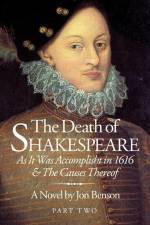av Jon Benson
357
William Shakespeare from Stratford-upon-Avon appeared in London in 1590 at the age of 26 and is believed by many to have begun writing the greatest plays the world has ever seen. There is no record of his education, if he had any. His parents, wife and children may have been illiterate. He left no books. No one reported in any diary or letter that they had met him or talked to him, or even talked about him. He left six signatures, all different. Three were on his last will and testament, which makes no mention of any plays, poems or books; two were on deeds to real property; the last was on an affidavit he gave in a court case. The records show a businessman who acquired considerable property during his lifetime, hoarded grain during a famine, and engaged in a number of lawsuits, one over as little as five pounds. He was connected with the theatre and may have been an actor, but there is nothing that independently proves he was the author of the plays attributed to him. Mark Twain, Sigmund Freud, Orson Welles, Sir Lawrence Olivier, Sir Derek Jacobi, Walt Whitman, and many others, including a number of United States Supreme Court justices, have all concluded that William did not write the plays. But if he didn't, who did? And if someone else was the greatest author who ever lived, why was Shakespeare given the credit? This is how it happened, and why Shakespeare paid with his life for his part in, to use the words of Henry James, "the biggest and most successful fraud ever practiced on a patient world


